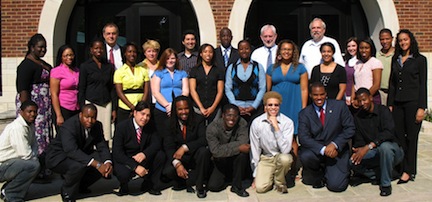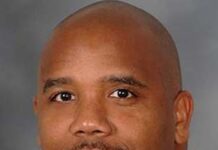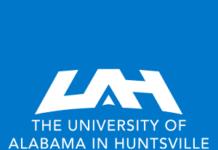Vanderbilt University in Nashville, Tennessee is on track this year to become the number one producer of minority Ph.D. recipients in physics, astronomy and materials science, areas where minorities are grossly underrepresented. One reason for this is a bridge program operated in conjunction with historically Black Fisk University, which is also located in Nashville

Students of any race or ethnic group with undergraduate majors in physics, chemistry, biology, or other science fields are eligible to apply to the Fisk-Vanderbilt Master’s-to-Ph.D. Bridge Program. The bridge program typically takes two years. Students selected for the program study for a master’s degree in physics, biology, or chemistry at Fisk University, with full funding support. Students in the program are able to conduct research with faculty members at Vanderbilt, who also serve as mentors. Students who are successful in the program get fast-track admission to participating Ph.D. programs at Vanderbilt, again with full funding from the program.
More information on the program is available here.
Here is a video showing doctoral graduates from the Fisk-Vanderbilt-Master’s-to-Ph.D. Bridge Program discussing their educational journey.












Watching the video of the African-American students who were part of the Fisk-Vanderbilt-Master’s-to-Ph.D. Bridge Program, receiving their PHD certificate was a tear jerker for me! I was an emotional moment for me, because it reminded me of my brother, receiving his M.D years, ago. He was the first in my family to attend university, and finish at the top of his class.
My brother was deaf in one ear, and was about to be put into a special education class, when he was in high school. It was the intervention of a Jewish teacher, who recognized his potential, and came to his rescue. She allowed him to use a room in her house to do his homework. At that time, my dad, brother and I lived in one room. This is where the cooking, sleeping, and watching of television were done. No homework could be done in such an environment.
I have great admiration for the Mexican-American professor at Vanderbilt university, whose brain-child it was to conceive and execute the Fisk-Vanderbilt-Master’s-to-Ph.D. Bridge Program.
We need more programs like this one.
This is a outstanding program and phenomenal opportunity for these students. As I watched the video I began to cry because it reminded me of me acquiring the doctorate in Clinical Psychology through the Patricia Roberts Harris Fellowship. At the timeframe I acquired that degree only 1% of African Americans were acquiring that particular degree. So the pride of accommplishment weld up in me again through watching these two scholars succeed on the video. These students at a critical mass level’s very presence in the classroom through their questions and dialogue open up new avenues and paradigms of thought for all their classmates thus enriching the field over time. Bravo!!
Dr. Barton, I congratulate you on your accomplishment. I have no doubt that you have made a difference, and will continue to make a difference in your chosen profession.
Since the great Recession, all the research and statistical data on the major economic indicators show that the African-American community is engaged in a major struggle for survival. The rate of poverty continues to increase daily, and the majority of middle class black families are, literally, just one pay check away from dropping into poverty!
Education has always been the ‘Underground Railway’ of the African American community from poverty. The monthly unemployment data shows that workers with a PHD degree have the lowest rate of unemployment in the nation.
It follows, logically, that the best escape route from economic hardship available to the African American community is to drastically increase the number of PHDs in our community.
Of course, I am not so economically stupid to believe that having a PHD, in whatever, field will totally insulate you from unemployment and poverty. There are some African Americans with PHDs who are presently unemployed and underemployed. There are many African American PHDs who earn far less than white workers with a high school diploma.
Having a PHD will not insulate African Americans completely, from racism in the society, generally, and at work in particular.
As a black male, I would rather have any PHD, than not have one.